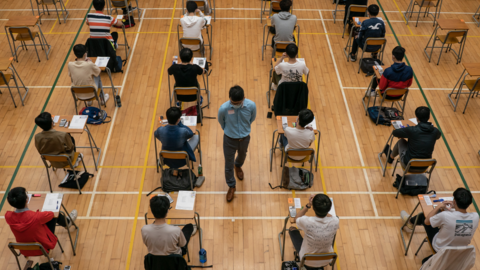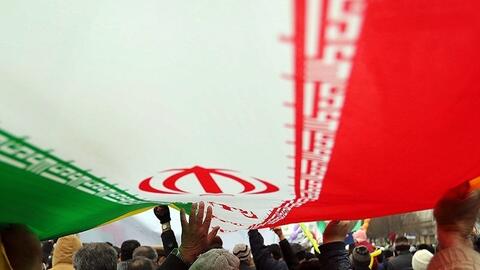Regional Expertise

Regional Expertise
Research Spotlight
Karen Eggleston
Beatriz Magaloni
Scott Rozelle
Kiyoteru Tsutsui
The Second “Mahapach” Is Already Here
Getting Ahead in Today’s China: From Optimism to Pessimism
- ,
- ,
Against the backdrop of China’s post-1978 economic transformation, recent challenges such as COVID-19 have prompted speculations about rising popular pessimism regarding current inequalities and opportunities to get ahead. This study compares findings from three new nationally representative surveys conducted in 2023 with three earlier surveys from 2004, 2009, and 2014. Results reveal a significant attitudinal shift, with 2023 respondents expressing markedly more critical views about the fairness of current inequality patterns. Respondents in the 2023 surveys increasingly attribute poverty versus wealth to structural factors like unequal opportunities rather than to variations in individual merit. Respondents also reported lower expectations for future income growth compared with the earlier surveys. While not indicating imminent threats to political stability, such trends suggest that China’s leaders will likely face increasing skepticism and even critical popular responses as they try to mobilize their citizens to confront the serious challenges that China faces in coming years.
Restoring Confidence and Transforming Analysis
Across the Firewall: Foreign Media’s Role in Shaping Chinese Social Media Narratives on the Russo-Ukrainian War
- ,
- ,
There is a widespread perception that China’s digital censorship distances its people from the global internet, and the Chinese Communist Party, through state-controlled media, is the main gatekeeper of information about foreign affairs. Our analysis of narratives about the Russo-Ukrainian War circulating on the Chinese social media platform Weibo challenges this view. Comparing narratives on Weibo with 8.26 million unique news articles from 2,500 of some of the most trafficked websites in China, Russia, Ukraine, and the United States (totaling 10,000 sites), we find that Russian news websites published more articles matching narratives found on Weibo than news websites from China, Ukraine, or the United States. Similarly, a plurality of Weibo narratives were most associated with narratives found on Russian news websites while less than ten percent were most associated with narratives from Chinese news sites. Narratives later appearing on Weibo were more likely to first appear on Russian rather than Chinese, Ukrainian, or US news websites, and Russian websites were highly influential for narratives appearing on Weibo. Altogether, these results show that Chinese state media was not the main gatekeeper of information about Russia’s invasion of Ukraine for Weibo users.
Digital First Responders: AI's Dangerous Blind Spot in Mental Health Crises
- ,
Constraints to Child Language Development in Peri-Urban and Rural Areas: A Mixed-Methods Analysis From Southwestern China
- ,
- ,
- ,
- ,
- ,
- ,
- ,
Purpose: This mixed-methods study examined how differences in parental time, knowledge, and economic constraints, as well as community socioeconomic contexts, may contribute to differences in home language environment and child language ability outcomes between peri-urban and rural households in China.
Method: We conducted an explanatory sequential mixed-methods analysis using data from 158 children aged 18–24 months among peri-urban and rural households with low socioeconomic status (SES) in southwestern China. Audio recordings were collected from each household and analyzed using the Language ENvironment Analysis system. The Mandarin version of the MacArthur–Bates Communicative Development Inventories was administered to each child's primary caregiver. We also conducted qualitative interviews with primary caregivers in 31 peri-urban and 32 rural households. Interviews were recorded, transcribed, and coded.
Results: The quantitative results reveal that children in peri-urban households heard less adult speech and had lower language ability than children in rural households. Directed content analysis of interviews found that peri-urban caregivers faced more severe time constraints and less favorable community socioeconomic contexts than rural primary caregivers. Taken together, these findings suggest that differences in time constraints and community socioeconomic contexts between the two populations are the most likely factors contributing to the inferior language environment and language ability among children in peri-urban households.
Conclusion: The mixed-methods study indicated that parental time constraints and community socioeconomic contexts should be considered alongside SES for a comprehensive understanding of factors influencing parental investment in the home language environment in China.
This brief presents a novel assessment framework for evaluating the quality of AI benchmarks and scores 24 benchmarks against the framework.
The quick reversal of President Yoon’s martial-law order is being celebrated as a democratic victory. But the problems run deeper than one man. What comes next?
Papers from Shorenstein APARC’s Korea Program Conference
Support, Co-Opt, Repress
A table for five: What to expect from each player at Ukraine peace talks
Perspectives of Digital Health Innovations in Low- and Middle-Income Health Care Systems From South and Southeast Asia
- ,
- ,
- ,
- ,
- ,
- ,
- ,
- ,
- ,
The SCCEI 2023-24 Annual Report is now available. Learn about the work we've accomplished this year and the impact we've made at home and abroad.
Do the Pathways of Child Development Before Age Three Matter for Development at Primary School? Evidence from Rural China
- ,
- ,
The literature has shown that cognitive and non-cognitive development before the age of three is associated with children’s levels of development at later ages. However, the extent to which the different pathways of cognitive and non-cognitive development before age three (between 6–12 months and 22–30 months of age) are associated with developmental outcomes at primary school age remains unknown. This study aims to examine this research question using three waves of longitudinal data collected from 1087 children aged 9 to 10 years and their primary caregivers in rural China. Results demonstrated four pathways of cognitive and non-cognitive development between 6–12 months and 22–30 months of age. The four pathways include: “never delayed”, “persistently delayed”, “improving”, or “deteriorating.” Children that experienced either persistently delayed or deteriorating development had lower levels of cognitive and non-cognitive development and performed worse academically than children that were never delayed when they were 9–10 years old. Maternal education attainment, family assets, and whether the child was born prematurely all predicted the child’s entry into different developmental pathways. Findings suggest that early childhood development screening and interventions that aim to facilitate healthy early development among children under three years old are needed for rural China’s young children.
Adaptation and Psychometric Evaluation of the Breastfeeding Self-efficacy Scale to Assess Exclusive Breastfeeding: A Cross-sectional Study in Rural China
- ,
- ,
- ,
- ,
- ,
- ,
- ,
Background
Despite the benefits of exclusive breastfeeding, the proportion of exclusively breastfed children remains low in rural China. Self-efficacy is one of the most crucial modifiable factors predicting breastfeeding behavior. However, existing instruments in China do not specifically measure self-efficacy for exclusive breastfeeding but rather measure self-efficacy for any breastfeeding. Furthermore, they have been validated only in high-income Chinese settings. We sought to adapt and validate an instrument to measure exclusive breastfeeding self-efficacy within rural Chinese contexts.
Methods
We introduced relevant items to Dennis’ Breastfeeding Self-Efficacy Scale-Short Form (BSES-SF), which can assess maternal self-efficacy for exclusive breastfeeding. It was then implemented in a multistage random cluster sampling design and cross-sectional survey with home-visit interviews among women 0–6 months postpartum (n = 654) in the rural areas of four counties in Sichuan, China. We performed item-total and adjusted item-total correlations, as well as exploratory factor analysis to remove redundant items and determine the latent factor structure. We further applied confirmatory factor analysis to test the dimensionality of the scale. We then assessed the reliability of the scale and conducted tests of predictive and divergent validity. Known group comparisons were made by primiparous status and breastfeeding support level. We compared the validated Exclusive Breastfeeding Self-Efficacy Scale with the BSES-SF in terms of reliability and validity to explore the added value of scale modification.
Results
Our modification of the BSES-SF to target exclusive breastfeeding produced 19 items. This was further reduced to 15 items based on adjusted item-total correlations and exploratory factor analysis, forming the Exclusive Breastfeeding Self-Efficacy Scale. This scale had three dimensions: “Breast milk supply and quality,” “Breastfeeding skills,” and “Exclusive breastfeeding” subscales. The Exclusive Breastfeeding Self-Efficacy Scale demonstrated strong internal consistency and overall reliability with a Cronbach’s alpha coefficient of 0.91. Predictive and divergent validity and known group comparison assessments supported its validity. Robust psychometric evaluations demonstrated enhanced validity and reliability compared to the original BSES-SF.
Conclusions
Our Exclusive Breastfeeding Self-Efficacy Scale is valid and reliable for measuring exclusive breastfeeding self-efficacy within rural Chinese contexts and is ready for adaptation and validation for clinical and programmatic use elsewhere, particularly within LMICs.
BetterBench: Assessing AI Benchmarks, Uncovering Issues, and Establishing Best Practices
- ,
- ,
- ,
- ,
- ,
This is Hard
Jawboning and free expression law are hard, writes Daphne Keller. And there are considerations that might shape analysis in future jawboning cases.
Exclusion Bias and the Estimation of Peer Effects
- ,
The Democratization of Information versus the Democratization of Ideas and Economic Capital
The International Empirics of Management
- ,
- ,
- ,
- ,
- ,
- ,
- ,
- ,
- ,
- ,
- ,
- ,
- ,
- ,
- ,
- ,
- ,
- ,
- ,
- ,
- ,
- ,
- ,
- ,
- ,
- ,
- ,
A country’s national income broadly depends on the quantity and quality of workers and capital. But how well these factors are managed within and between firms may be a key determinant of a country’s productivity and its GDP. Although social scientists have long studied the role of management practices in shaping business performance, their primary tool has been individual case studies. While useful for theory-building, such qualitative work is hard to scale and quantify. We present a large, scalable dataset measuring structured management practices at the business level across multiple countries. We measure practices related to performance monitoring, target-setting, and human resources. We document a set of key stylized facts, which we label “the international empirics of management”. In all countries, firms with more structured practices tend to also have superior economic performance: they are larger in scale, are more profitable, have higher labor productivity and are more likely to export. This consistency was not obvious ex-ante, and being able to quantify these relationships is valuable. We also document significant variation in practices across and within countries, which is important in explaining differences in the wealth of nations. The positive relationship between firm size and structured management practices is stronger in countries with more open and free markets, suggesting that stronger competition may allow firms with more structured management practices to grow larger, thereby potentially raising aggregate national income.
Demand for Commitment in Credit and Saving Contracts: A Field Experiment
- ,
- ,
- ,
- ,







